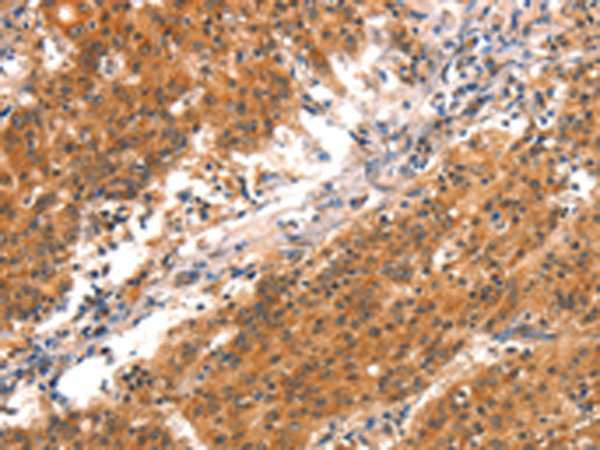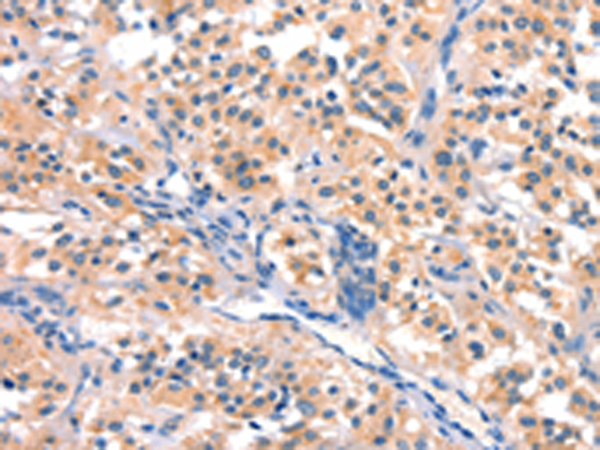

| WB | 咨询技术 | Human,Mouse,Rat |
| IF | 咨询技术 | Human,Mouse,Rat |
| IHC | 1/25-1/100 | Human,Mouse,Rat |
| ICC | 技术咨询 | Human,Mouse,Rat |
| FCM | 咨询技术 | Human,Mouse,Rat |
| Elisa | 1/2000-1/5000 | Human,Mouse,Rat |
| Aliases | BCL4; D19S37 |
| Host/Isotype | Rabbit IgG |
| Antibody Type | Primary antibody |
| Storage | Store at 4°C short term. Aliquot and store at -20°C long term. Avoid freeze/thaw cycles. |
| Species Reactivity | Human, Mouse |
| Immunogen | Synthetic peptide of human BCL3 |
| Formulation | Purified antibody in PBS with 0.05% sodium azide and 50% glycerol. |
+ +
以下是关于BCL3抗体的3篇参考文献及其摘要概括:
1. **"Bcl-3 regulates TNFα-induced survival in breast cancer cells by modulating NF-κB/IκBα complex formation"**
*Authors: Schwarz C, et al.*
摘要:研究利用BCL3抗体探讨了BCL3在乳腺癌细胞中通过调控NF-κB/IκBα复合物形成,促进肿瘤坏死因子α(TNFα)诱导的细胞存活机制,揭示了其在肿瘤耐药中的潜在作用。
2. **"Bcl-3 suppresses colitis-associated cancer through inhibition of NF-κB-mediated inflammation"**
*Authors: Liu Y, et al.*
摘要:通过免疫组化及BCL3抗体实验,发现BCL3通过抑制NF-κB驱动的炎症反应,降低结肠炎相关肠癌风险,为靶向BCL3的抗炎治疗提供了依据。
3. **"Antibody-based targeting of Bcl-3 in B-cell malignancies: a novel therapeutic strategy"**
*Authors: Thompson JS, et al.*
摘要:研究开发了一种特异性识别BCL3的单克隆抗体,证明其在体外和体内模型中可抑制B细胞淋巴瘤的增殖,提示其作为新型治疗工具的潜力。
4. **"Bcl-3 modulates the DNA damage response in p53-deficient tumors"**
*Authors: Martinez E, et al.*
摘要:利用BCL3抗体及ChIP-seq技术,揭示了BCL3在p53缺失的肿瘤中通过调控DNA损伤修复通路,影响化疗敏感性的分子机制。
×